It is historically said that the proper maturation can improve the flavor of tea. Based on the fact, tea shops sell their original matured teas from the middle of autumn till the end of winter. The maturation is known as “Kojuku”, which literally means “maturation afterward (the crude tea processing)”. Tea farmers and tea stores seal the crude tea in proper method and store them in the appropriated condition, where the temperature and humidity are low enough to prevent crude tea from oxidation. Indeed, every matured teas which I have tasted tends to have mellower aroma and less fresh glassy nuance than the teas sold at the end of spring.
Tea farmers has stored their crude teas at the higher altitude on mountains because of the requirement for the lower temperature and humidity.
In the tea estates in Hamamatsu city such as Tenryu Tea Estate, Haruno TeaEstate and Mikatabara upland, tea farmers store their teas in Akiha Shrine which is located on the top of Mt. Akiha in order to mature their tea properly based on the tradition, somehow wishing the divine favor of Akiha Shrine.
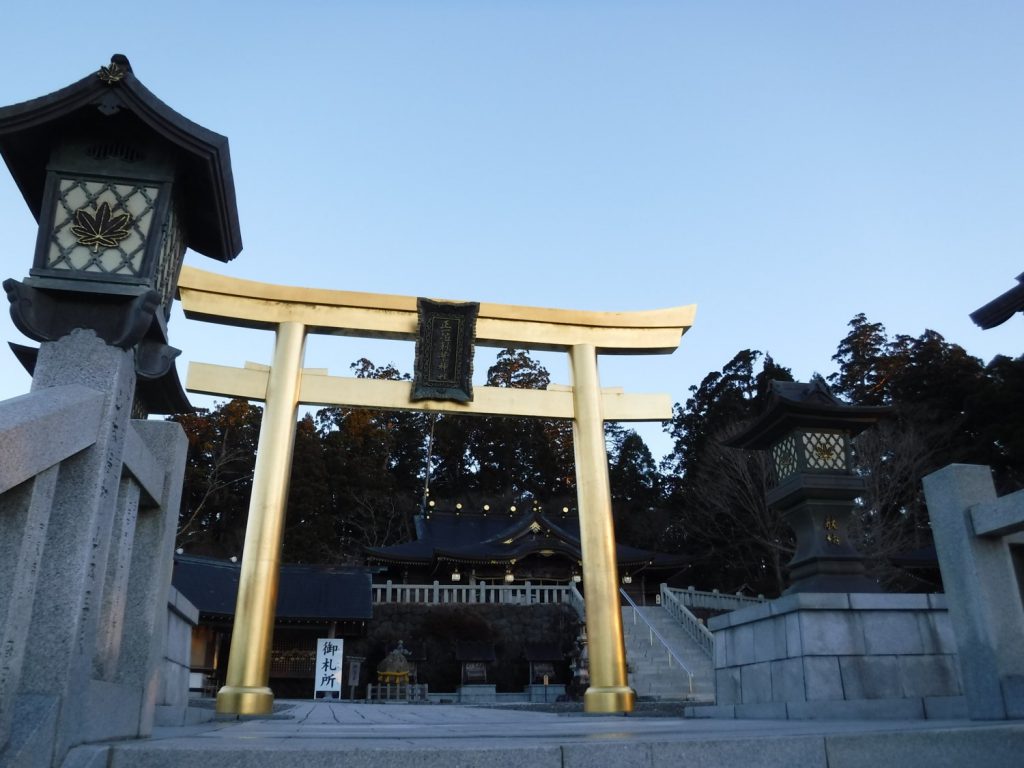 They use “Chatsubo” tea jar for the storage of crude teas, as shown in the picture below.
They use “Chatsubo” tea jar for the storage of crude teas, as shown in the picture below.
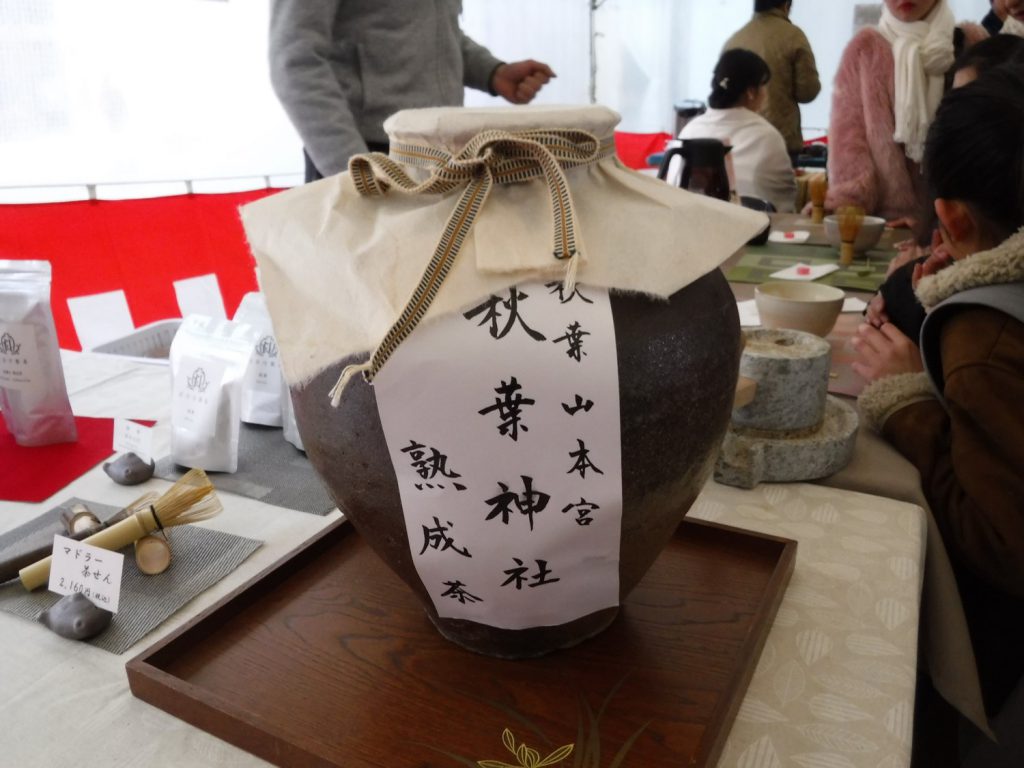
The tea jar “Chatsubo” used for the maturation of teas stored in Akiha Shrine.
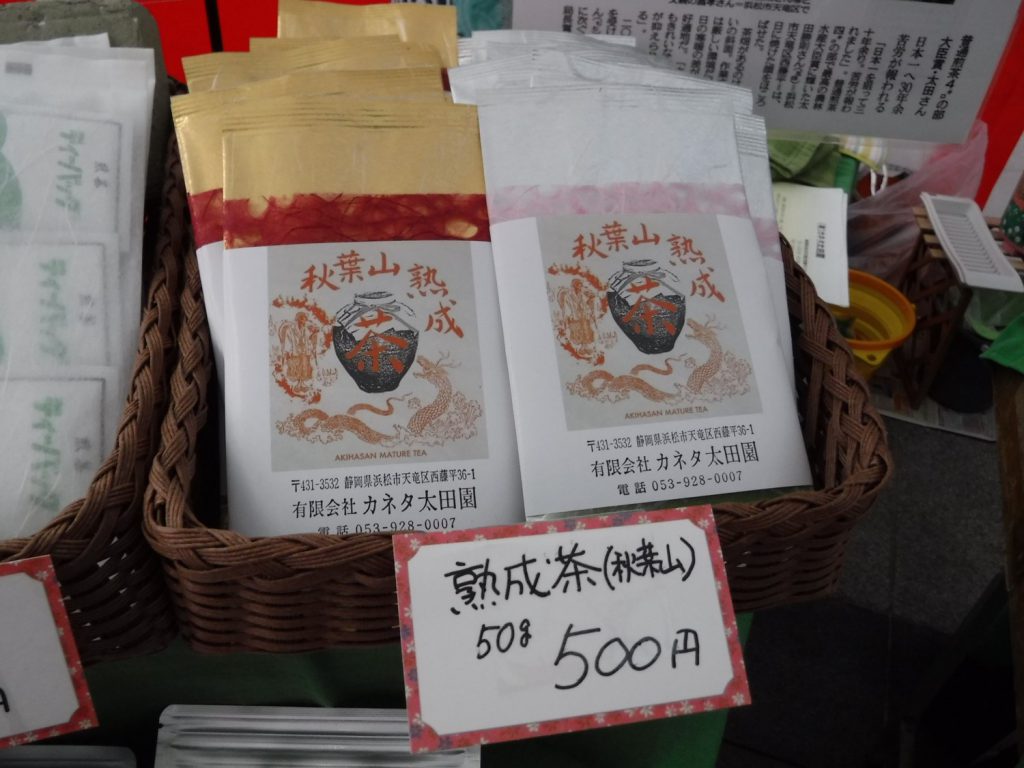
In addition to the “Chatsubo” tea jar, Tengu and Dragon are depicted on the package of matured tea as symbols of Mt. Akiha.
In the new year sale of specialty teas matured in Akiha Shrine held on 3rd January, I got two matured teas. One is produced by Kaneta Otaen in Tenryu Tea Estate and another one is produced by Marutama in Mikatabara upland.
(1) The matured tea produced by Kaneta Otaen
As posted before, Kaneta Otaen is one of the most prominent tea farmers in Japan, who won MAFF-award for light steamed Sencha in All Japan Tea Competition several times.
When I steeped the light steamed tea matured in Akiha Shrine, I was surprised with the mellow aroma released from the infusion. Especially I felt the mellow fragrance during brewing the tea to a tea cup.
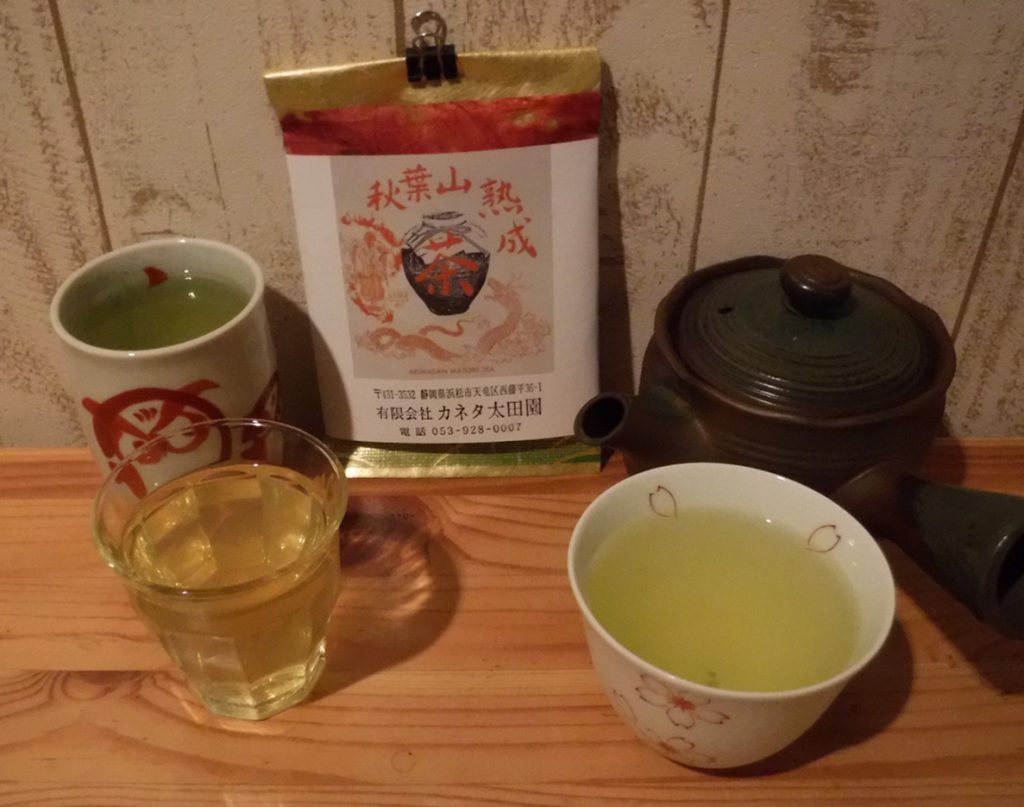
Every time I open the package of specialty tea, I can enjoy the aroma of loose leaf tea. In the case of this special matured tea, I was delighted the aroma released during brewing using hot water.
The first infusion by cold brewing has rich umami and duality of fresh aroma and mellow scent.
Second infusion brewed with warm water has smooth mouthfeel with mellowness.
The third infusion brewed with hot water expresses wonderful aroma of fully matured sweet note with full-bodied flavor and comfortable finish changing from astringency to sweetness moderately.
I tried small infusion using s special tea ware for the bit-brewing, which is originally designed by Kaneta Otaen and produced by a local specialty pottery in Tenryu Tea Estate.
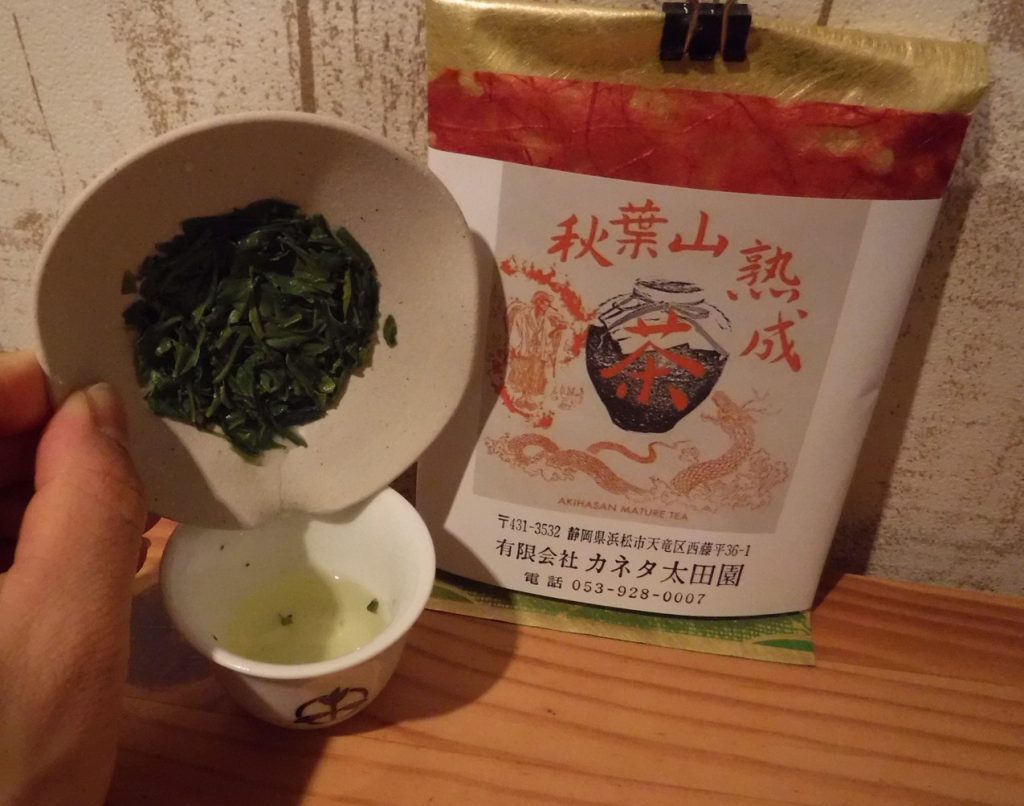
The unique tea apparatus let me enjoy the appearance of loose leaf tea and changing shapes of tea leaves during steeping.
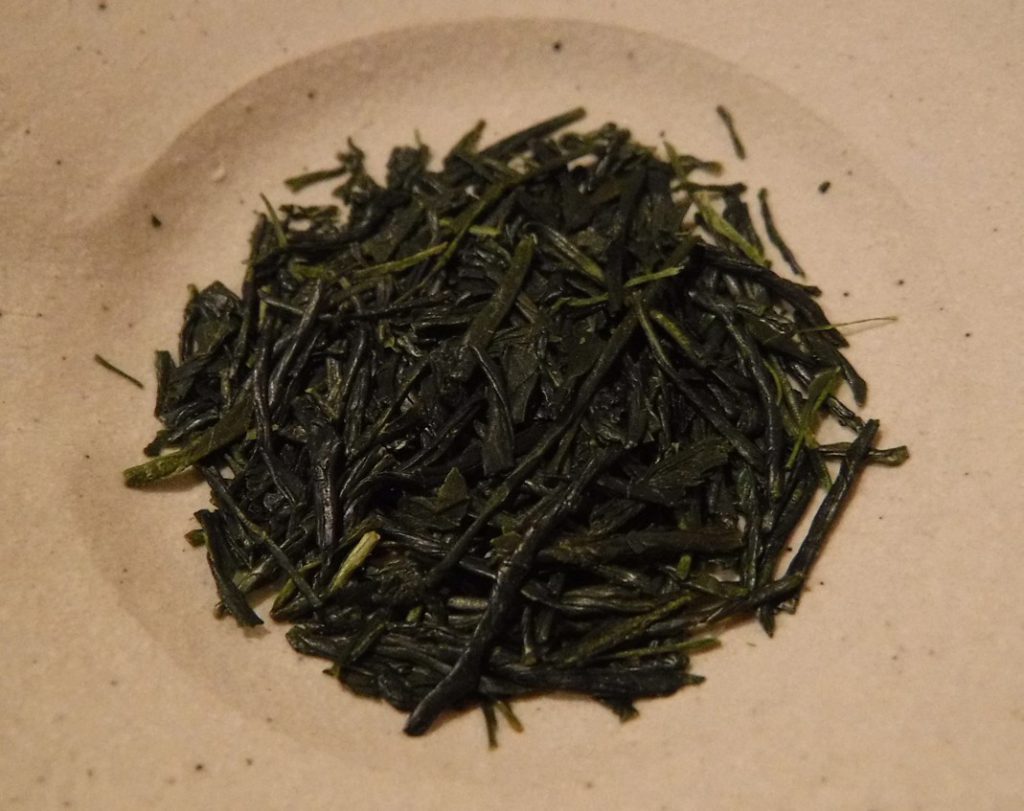
The appearance of loose leaf tea produced by Kaneta Otaen matured in Akiha Shrine.
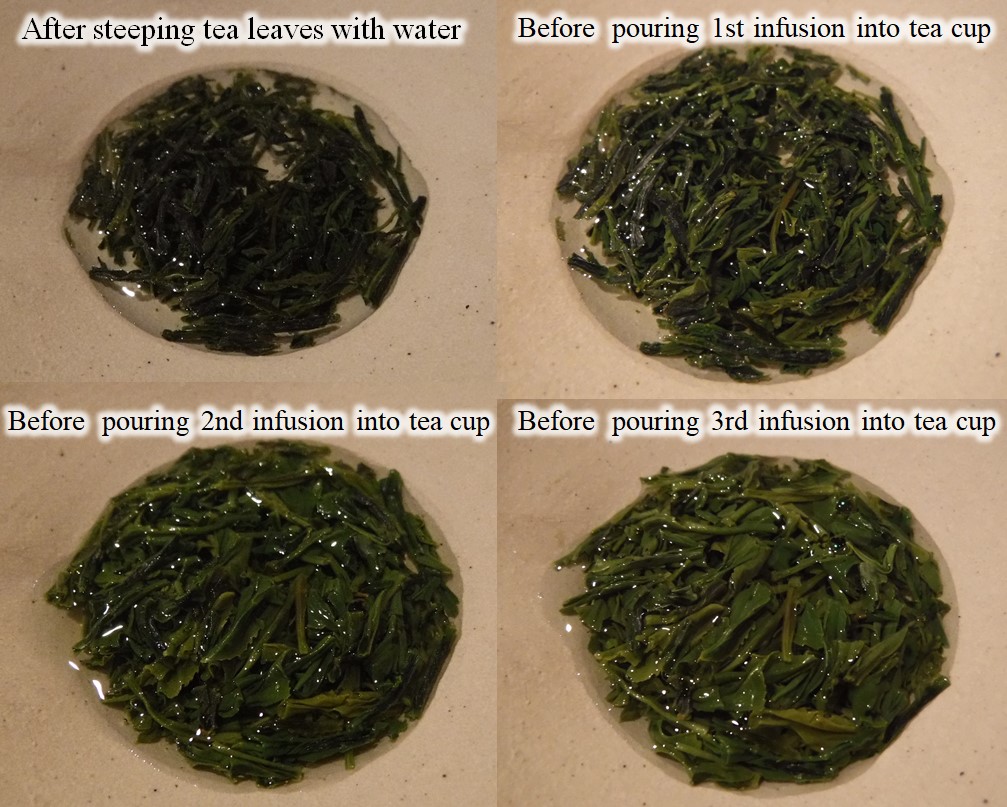
The change of tea leaves with re-steeping.
This brewing manner allows us to steep approx. 5 times. And after brewing, we can eat the tea leaves with some sauces, such as Shoyu soy sauce or Ponzu, a mixture of Shoyu soy sauce and citrus juice.
(2) The matured tea produced by Marutama ltd.
Marutama ltd. produces deep steamed Sencha on Mikatabara upland because tea shoots grown on the upland suits for deep steaming due to the thicker leaves grown under the sufficient sun shine.
The feature of this matured tea produced by Marutama is the enduring rich flavor. From the first infusion to fourth infusion, I could be delighted by the richness and full bodied flavor with mild astringency, which suits to my preference.
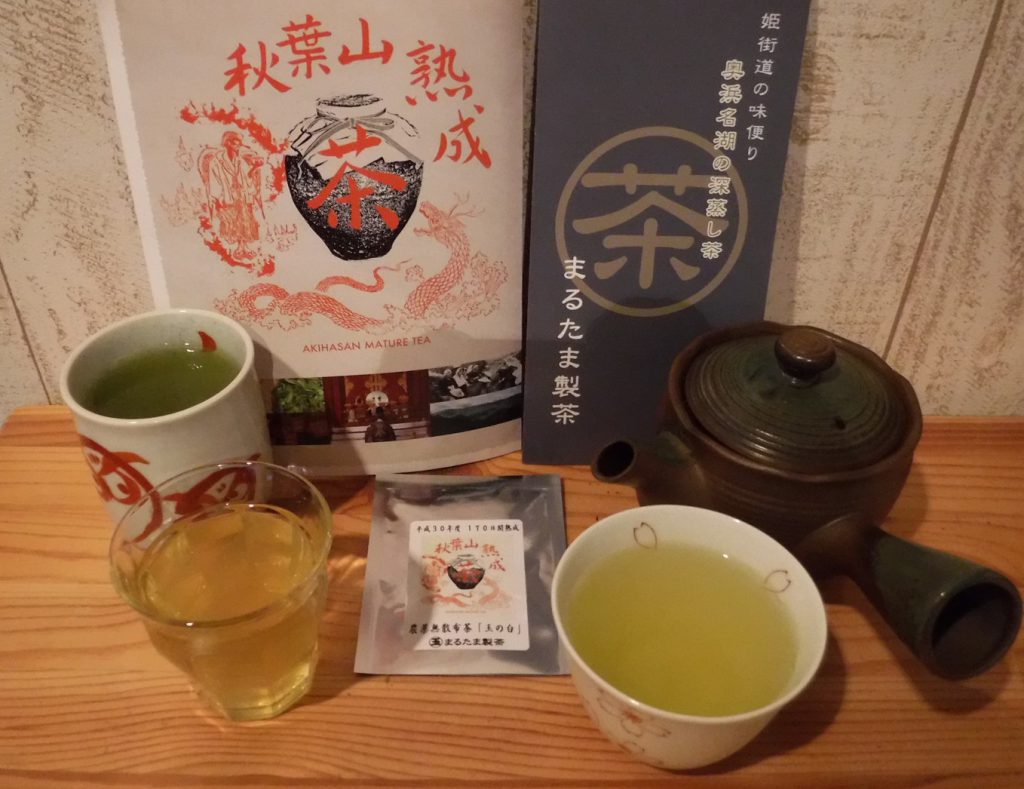
The gloss of loose leaf tea implies the richness in flavor and aroma.
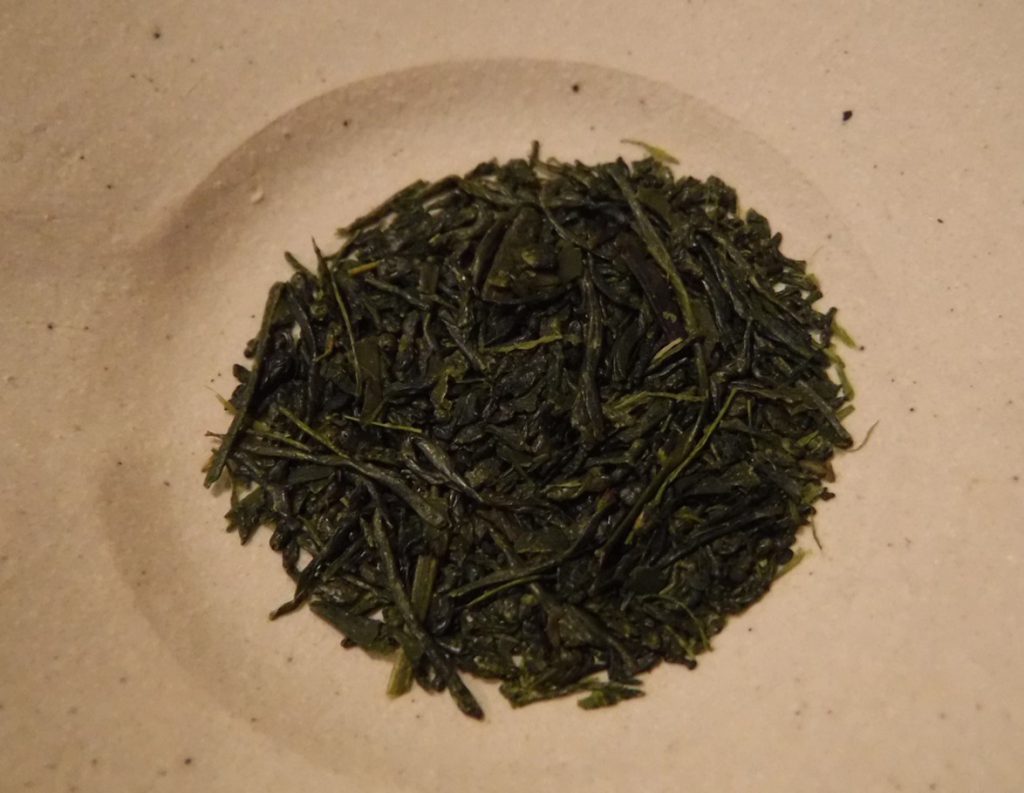
The bit infusion of this matured tea provides me with approx. 7 times sips of richness with well-balanced astringency.
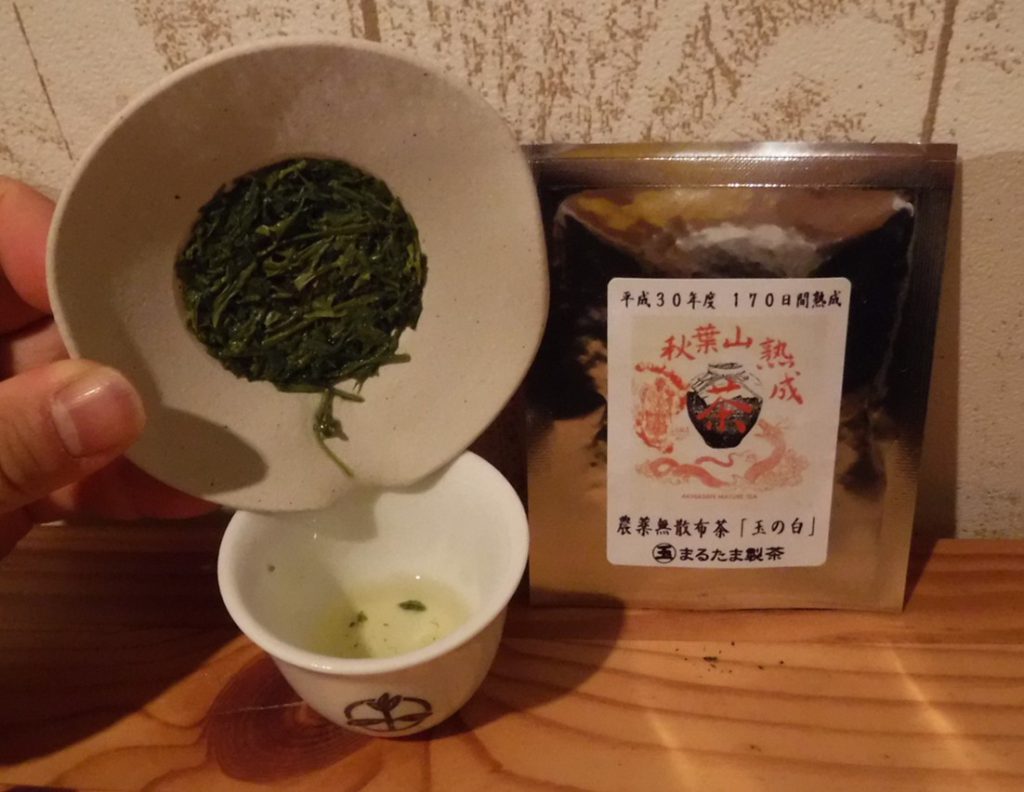
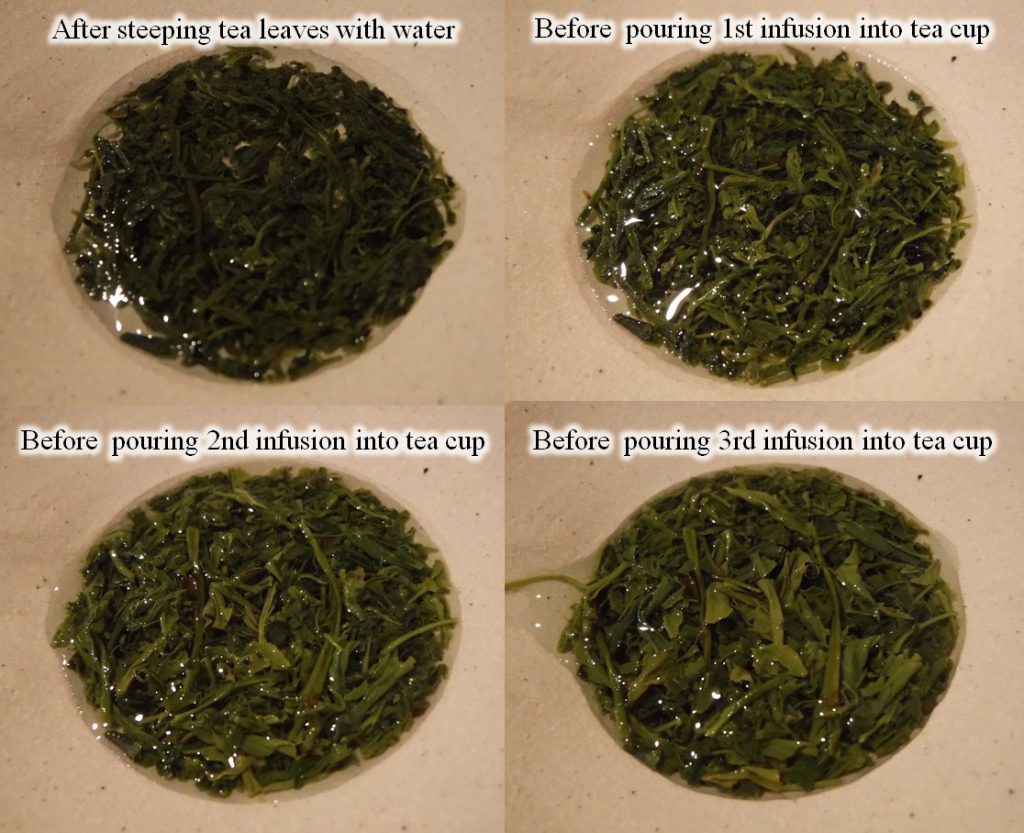
Marutama tea farm practices the special cultivation based on the “Guidelines for Organic Agricultural Products and Specially Cultivated Agricultural Products” proposed by MAFF. Based the guidelines, Marutama’s tea is classified to the “Specially Cultivated Agricultural Products”, which are cultivated using less agrichemicals than half of ordinal cultivation. The descriptions on the package of Marutama’s matured tea shows that the tea shoots were cultivated without any pesticides and herbicides. They practice tea farming without any agrichemicals in some of their tea plantations, Mr. Suzuki, the president of Marutama ltd. said.
In addition, Marutama ltd. has tried a sustainable practice which they put phragmites grown around the lake which had got eutrophication in the past time accounting for nitrate and phosphorus from agriculture around the lake. The scenes of their environment-friendly practice are shown in the webpage of Marutama ltd.
Marutama ltd. has their retail shop along with Hime Kaido road. They sell their specialty teas and original confections using teas.
< Information of retail shop of Marutama ltd. >
- Address : 7172-917, Nakagawa, Hosoe-cho, Kita ward, Hamamatsu city, Shizuoka prefecture, Japan.
- Hours : 9:00 – 18:00
- Holidays : Sunday and National Holiday in Japan.
- Access : It is recommended to go by car using the car navigation.
